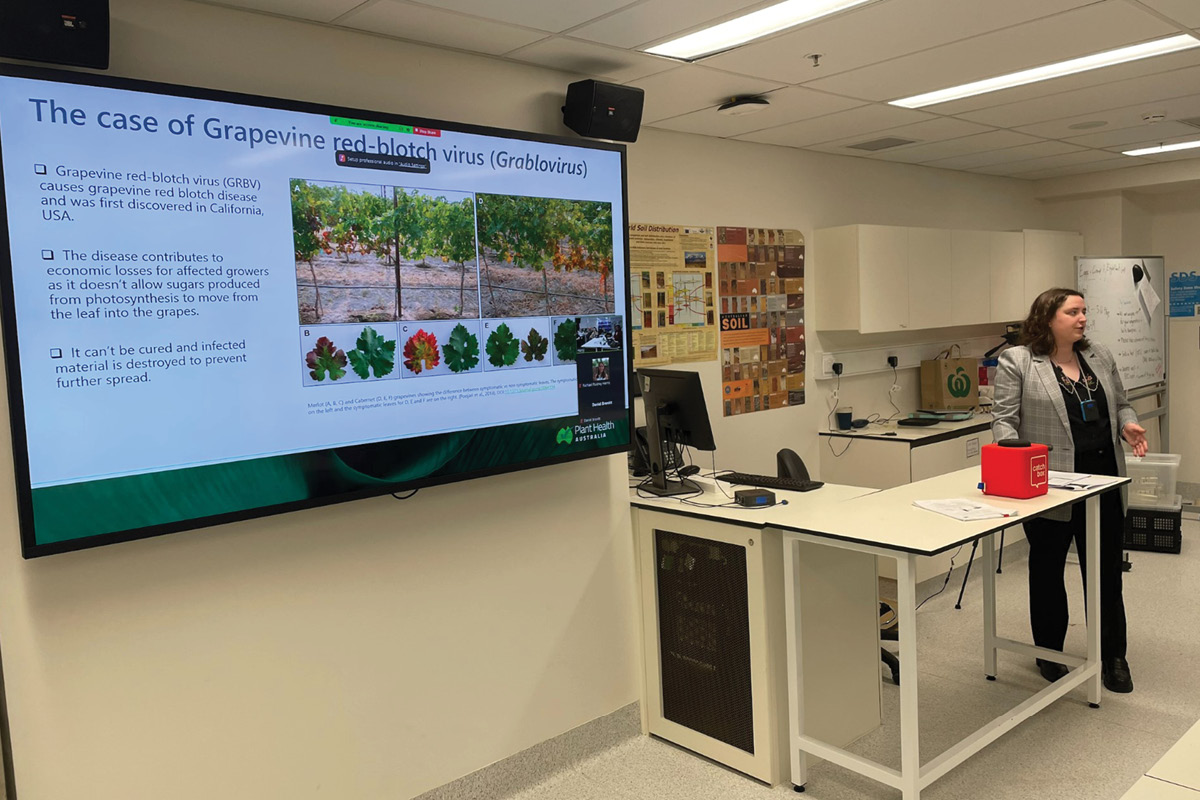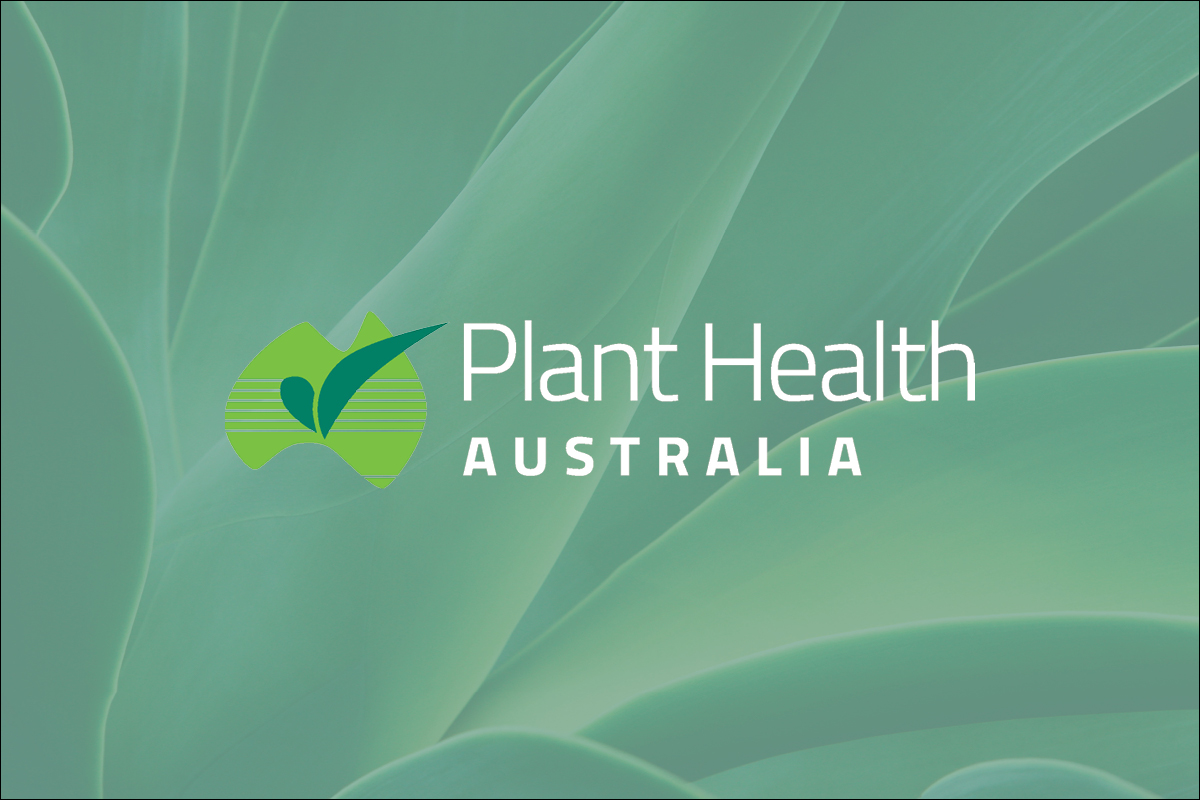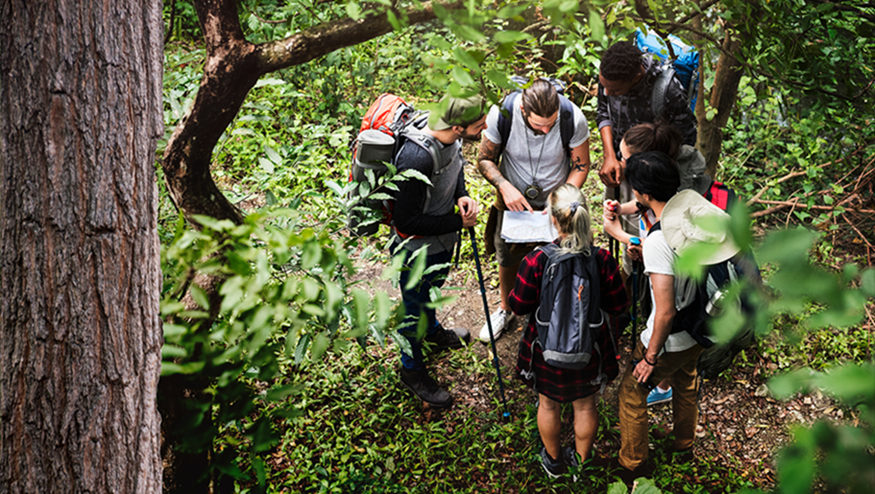Sharing the importance of science-based work in biosecurity
Continuing Plant Health Australia’s (PHA) plant biosecurity lecture series, Project Officers Luke McKee and Rebecca Powderly recently presented to students at the Australian National University (ANU) studying Agricultural Systems, and students at the Canberra Institute of Technology (CIT) studying a Diploma of Horticulture.
Luke and Rebecca described Australia’s biosecurity system and highlighted the importance of biosecurity being a shared responsibility. They also explained PHA’s role in protecting Australia’s biosecurity system and the important science-based work we do in the field of plant biosecurity, such as digital systems, Emergency Plant Pest Response Deed (EPPRD), and communications.
The lecture focused on biosecurity theory in practice, with real-life biosecurity case studies. Students had the opportunity to inspect preserved exotic pests and a sticky mat from a New Zealand beehive used to manage Varroa mite. The lecture concluded with some advice to the students on how to become involved in biosecurity, promoting PHA’s trial internship program and social media platforms.
Overall, it was an engaging session with interest in the case studies, a variety of insightful questions, and expressing particular interest in bee biosecurity and the ongoing Varroa mite response.
Both Luke and Rebecca received excellent feedback from students and teachers:
“The students really appreciated the external non-traditional academic views.” – Benjamin Schwessinger. PHD.
“Thank you. [The students] really enjoyed your presentation and understanding things from the inside out.” – Vanessa Hagon.
Dr Rachael Rodney-Harris who attended the final lecture online and is involved in the ANU intern program, thanked Luke and Rebecca for their expertise and time presenting to the students.
Rebecca and Luke enjoyed the experience and the opportunity to reflect on their own personal contributions to plant biosecurity as part of their roles within PHA.






